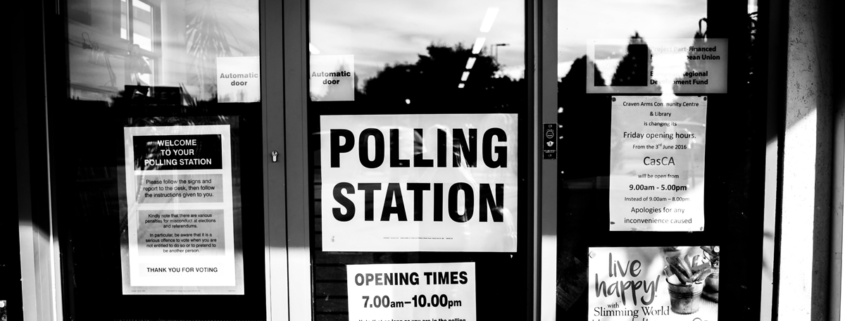I am a Bahamian, and have been since the day of my birth in Nassau, Bahamas. My parents are Bahamians, as are their parents, and their parents’ parents. They have all participated in Bahamian democracy to varying extents, and have all exercised the right to vote. I grew up in the ’90s, at a time when The Bahamas decided it was ready to end one man’s 25-year political reign. Young as I was, I remember the energy during the election seasons of 1992 and 1997, and the palpable excitement born of people drunk on democratic power to make strong statements through the marking of one X. There was optimism.
I remember spreading the newspaper tracking grids for the election on the floor in 1997, carefully filling in numbers as they were announced, giving family members updates on the tally. I knew who they voted for — who they had always voted for — and that it was an important night, for everyone. I looked forward to being a part of the process, and marking my X in support of a candidate and a leader I believed in.
I have been eligible to vote for the past two elections, but have yet to feel that energy again. It is gone. Those may have been the last years that the Bahamian people yearned for change, and truly believed it would come with the election of a different party and that party’s leader. Since then, it’s been an almost-mindless exercise of teaching two parties, in turn, the same lesson over and over again:
Disappoint, and we will vote you out.
For more than two decades, the Bahamian people have been voting against candidates and parties rather than for their alternatives. It’s certainly a way to make a decision, but isn’t a sign of a healthy democracy. In a representative democracy, Members of Parliament are tasked with representing their constituencies and their collective interest, but they generally seem to be more interested in representing party.
When did party become more important than people? When did we give our representatives permission to meet behind closed doors, discuss matters that directly affect us, come to conclusions, and present them to their counterparts, all without consultation with us — their employers?
Perhaps they misinterpreted silence as permission.
They watch as we struggle to get 20 people to stand together in Rawson Square for causes we claim are important to us. They listen as we tear each other down based on minor differences that don’t come close to the multitude of things we have in common. They smell the rotting fruit of fear, surrounding trees they planted long ago, together with their “opponents”.
Is it not time for them to feel the rising power of the people they have ignored for so long?
Is it not time for them to suffer the bitter aftertaste of being swindled out of whatever they had to give?
T-shirts — some with phone cards bundled inside — may have been considered fair trade for Xs before, but not any more. They don’t excite us. No manifestos, charters of governance, or partial slates are good enough to win us over. We are tired. We are unimpressed. We are far too experienced, now, to put our hope in groups of people who decide among themselves that they are good enough to represent us, but never seem to find the words to speak for us. We will no longer accept this dynamic. We are ready to demand better. To refuse to comply. To disobey. Right?
People try to convince us that our vote is our only voice. That is a lie. Democracy does not visit us once every five years, then leave. It is always here, ready to be exercised. We need only decide that it is ours to master, to champion, and to demonstrate. It is a matter of choice.
I choose to be an active participant in democracy, as is my right. I choose to advocate for the rights of women and girls. I choose to sign petitions, join protests, and organize communities to take action. I choose to register to vote. I choose to withhold my vote from parties and candidates that have done nothing to earn it. I choose to publicly discuss my decision to spoil the ballot. I choose to encourage others not inclined to support any existing parties or candidates to take the time to register to vote, stand in line, and spoil their ballots. I choose to illuminate the often-overlooked opportunity to reject the options put to us and the system by which they were selected, on the record. I choose to co-design an innovative, responsive, comprehensive campaign to push 10,000 people #OutDaBox242 in 2017 as a step — one of several — toward a necessary shift in political culture.






Leave a Reply
Want to join the discussion?Feel free to contribute!